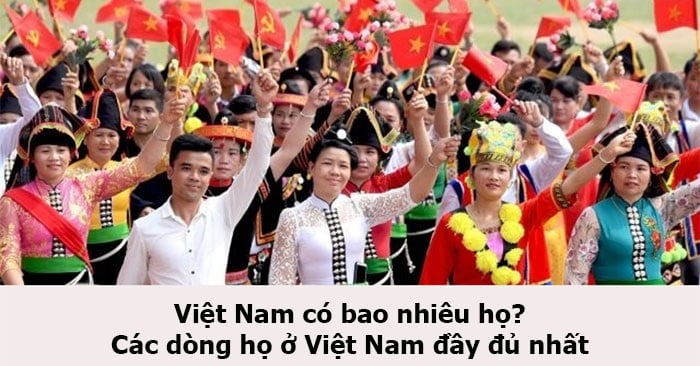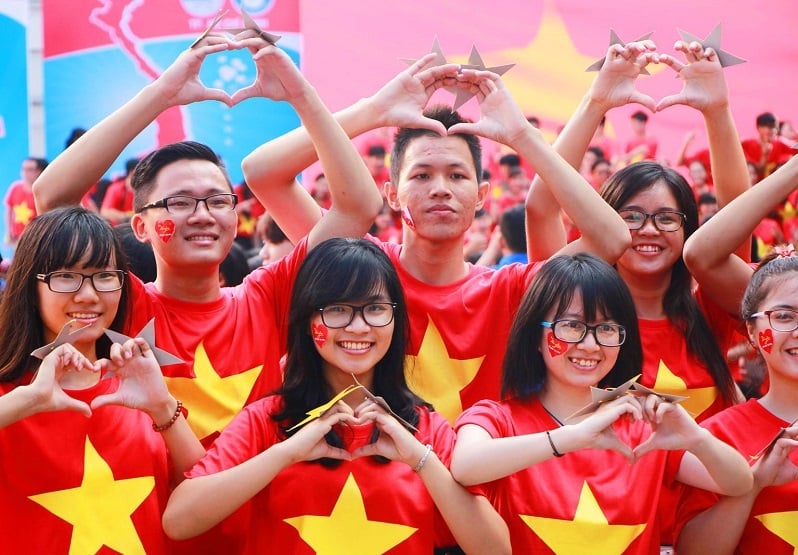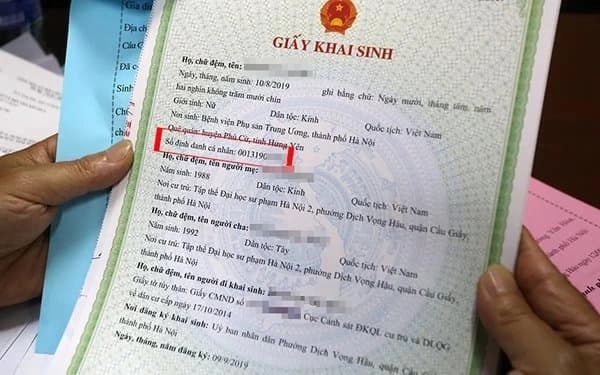How Many Surnames Are There in Vietnam?

The Most Common Surname in Vietnam
Surnames in Vietnam are used to indicate people who share a common ancestor, a broader concept than just sharing a family name. In his book, Surnames and Given Names of Vietnamese People (Social Sciences Publishing House), PGS.TS Le Trung Hoa recorded all the surnames found in the territory of Vietnam, and this number has increased with each reprint.
Specifically, in the first edition published in 1992, 769 surnames were recorded, including 164 surnames of the Kinh people. In subsequent reprints, the number of Kinh surnames changed very little, but many more surnames of other ethnic groups were recognized by Le Trung Hoa’s research group. In the 2002 edition, the total number of surnames in the country was 931, including 165 Kinh surnames.
In the third edition (2005), the number of recorded surnames increased to 1020, with the number of Kinh surnames remaining the same. After the book was printed, the research group discovered three more surnames, bringing the total number of recognized surnames in Vietnam to 1023 at that time.
Of these, the most common surname is Nguyen, accounting for 38.4% of the population. Tran is the second most common surname (12.1%), followed by Le (9.5%), Pham (7%), Hoang/Huynh (5.1%), Phan (4.5%), and Vu/Vo (3.9%). Just these seven surnames make up 80.5% of the population.
Other relatively common surnames include Dang (2.1%), Bui (2%), Do (1.4%), Ho (1.3%), Ngo (1.3%), Duong (1%), and Ly (0.5%).
In addition to these single-syllable surnames, Vietnamese people also have compound surnames, which come in two types.
– The first type is a combination of a surname and a middle name, such as Dang-Xuan, Dang-Vu, or Ngo-Thoi. This type of compound surname originates from families who want to distinguish their branch by adding a middle name to the original surname, for example, Ngo Thoi is a branch of the Ngo surname.
– The second type is a combination of two different surnames, such as Vu-Pham, Dang-Tran, or Tran-Le.
The Top 14 Most Common Surnames in Vietnam
As of now, there are 14 common surnames in Vietnam, namely:
- Nguyen: 38.4%
- Tran: 12.1%
- Le: 9.5%
- Pham: 7%
- Hoang/Huynh: 5.1%
- Phan: 4.5%
- Vu/Vo: 3.9%
- Dang: 2.1%
- Bui: 2%
- Do: 1.4%
- Ho: 1.3%
- Ngo: 1.3%
- Duong: 1%
- Ly: 0.5%

How Many Surnames Are There in Vietnam?
Most of the common surnames in Vietnam are associated with the country’s feudal dynasties. The most common surname among the Kinh people and all Vietnamese is Nguyen. A 2005 statistic showed that about 38% of Vietnam’s population bore the surname Nguyen. This is understandable since the Nguyen dynasty was the last feudal dynasty of Vietnam.
Similarly, the surnames Tran, Le, and Ly are also common as they were the surnames of other royal families that ruled Vietnam, namely the Tran dynasty, the early Le and later Le dynasties, and the Ly dynasties. The origins of surnames in Vietnam.
Three names that are prohibited from being registered at birth in Vietnam are:
Names that are not in the Vietnamese or ethnic minority languages of Vietnam
Clause 3 of Article 26 of the Civil Code requires that personal names be in the Vietnamese or ethnic minority languages of Vietnam. Therefore, when registering the birth of a child and filling in their name on the birth certificate, parents must use names in Vietnamese or the languages of Vietnam’s ethnic minorities.
If a name is not in Vietnamese or the language of a Vietnamese ethnic group, it may be refused for birth registration.
In reality, there are many foreigners living and working in Vietnam. As a result, a large number of them marry and have children with Vietnamese citizens or marry Vietnamese citizens. However, if the child is born with Vietnamese citizenship and is registered for birth in Vietnam, they are considered Vietnamese citizens and must follow Vietnamese law regarding naming.
Therefore, names in foreign languages will not be accepted. Instead, parents can use the Vietnamese/ethnic minority language transliteration or can still use the Vietnamese/ethnic minority language for the birth certificate name and call the child by a nickname or a foreign name at home.
Conversely, if the child is born without Vietnamese citizenship and holds a foreign nationality, the naming rules will not apply.

Rules for Naming in Vietnam
Names that are numbers or single characters that are not letters
Similar to the requirement that children’s names be in Vietnamese, names that are numbers or non-letter characters, such as @, #, $, etc., are also prohibited in Vietnam.
Names that do not preserve the national identity, customs, and fine traditions and culture of Vietnam
Similar to the prohibited names mentioned above, the explanation of what constitutes a name that does not preserve the national identity, fine traditions and culture, and customs of Vietnam is not currently provided in any document other than Circular No. 04/2020/TT-BTP.
Therefore, to determine if a name is prohibited, it is necessary to consider the specific name, the ethnic identity of the person bearing the name, and the fine traditions and culture, and customs of the community in which they live.
Names that are too long and difficult to use
This is one of the things that Vietnamese law prohibits when it comes to naming children. However, there is no specific guidance on how many characters are considered too long and difficult to use.
Previously, a proposal to limit the number of characters in an individual’s name to no more than 25 was included in the 2015 draft Civil Code. However, this proposal was not included in the final Civil Code.
































